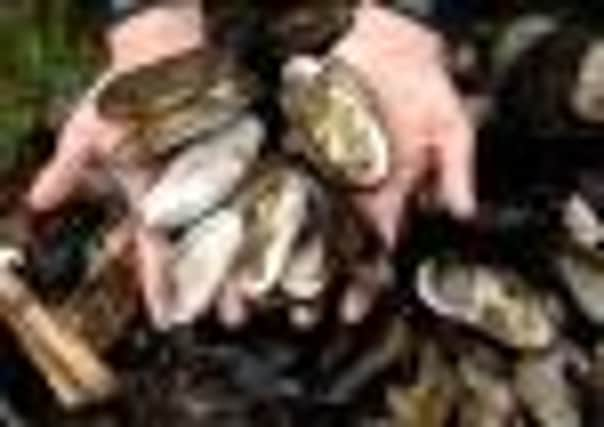Hydro firm caused ‘hundreds of years’ of damage


The hydro scheme – designed to produce electricity for 600 homes – destroyed a colony of protected freshwater pearl mussels and devastated one of Scotland’s rivers.
In the space of a few months, contractors managed to cause the equivalent of “hundreds of years” of pollution and killed hundreds of rare mussels.
Advertisement
Hide AdAdvertisement
Hide AdThe work to the River Lyon was so disastrous that the basic repair bill ran to almost £1 million and caused pollution that also harmed salmon and lamprey stocks. Several miles of the river were badly damaged.


The company that designed the small hydro scheme, 12 miles from Aberfeldy, Perthshire, was yesterday fined £4,000. The directors of two other companies involved in the scheme had their sentences deferred.
Sheriff Michael Fletcher said: “The inadequate protection of the river was not an isolated incident, but a series of deficiencies over a lengthy period.”
Shawater Ltd had overseen the scheme, but Perth Sheriff Court was told that the company – run by engineer Dr Thomas Shaw – had been making a loss and would be dissolved by the end of this month.
Shawater, an English company, admitted causing catastrophic damage to the pearl mussel population during construction of the scheme in Glen Lyon.
The company admitted being responsible for the death and injury of mussels over the course of more than a year while it was working on the Inverinian hydro scheme in Perthshire.
Between 3 September, 2009, and 1 October, 2010, Shawater allowed its sub-contractors to build a pipeline, ford and access track “in a manner likely to cause pollution”.
They failed to prevent silt from entering the Inverinian Burn and River Lyon. The silt caused damage to the river bed that devastated the mussels.
Advertisement
Hide AdAdvertisement
Hide AdAlan Smith, 48, a director of sub-contractor A & C Construction, and Charles Kippen, 52, from Stanley, Perthshire, a director of Chic Kippen & Son, also admitted similar charges of killing and injuring pearl mussels.
Smith, of Mitchell Street, Crieff, also admitted a second charge relating to work carried out on the Castles Estate hydro project at Dalmally, Argyll. He admitted that between 4 August and 4 October, 2010, he carried out activity liable to cause pollution to the water environment by constructing a ford. As a result of his work, silt contaminated with oil poured into Allt Coire Ghlair, Allt Coire Chrechainn and Allt Mhoille.
Fiscal depute Tom Dysart told the court that the Lyon contained freshwater pearl mussels that were “largely extinct and listed as a globally endangered species”.
Mr Dysart said the mussels were of “international importance” and had been wiped out despite the contractors being “well aware” of the environmental sensitivity of the site.
He said experts from the Scottish Environment Protection Agency called the impact “the worst they had ever seen”.
Scotland is home to about half of the world’s population of pearl mussels and the species is one of the most critically endangered molluscs globally.